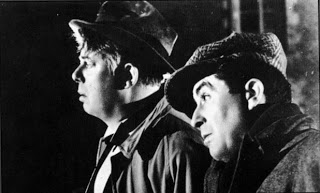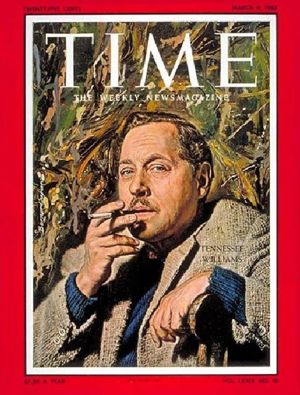 Apropos of this posting, I now ask a different but related question: what ten films have stayed with you? Not the ten “best” films or the ten “greatest” films—this is a purely personal inquiry, and so should be answered as quickly as possible in order to avoid, insofar as possible, any self-conscious oh-what-a-cineaste-am-I posturing.
Apropos of this posting, I now ask a different but related question: what ten films have stayed with you? Not the ten “best” films or the ten “greatest” films—this is a purely personal inquiry, and so should be answered as quickly as possible in order to avoid, insofar as possible, any self-conscious oh-what-a-cineaste-am-I posturing.
Go:
• Roman Polanski’s Chinatown
• Jean Renoir’s The Rules of the Game
• Jacques Tourneur’s Out of the Past
• Arthur Hiller’s The In-Laws
• Richard Benjamin’s My Favorite Year
• John Ford’s The Searchers
• Kenneth Lonergan’s You Can Count on Me
• Harold Ramis’ Groundhog Day
• Orson Welles’ Citizen Kane
• Steve Kloves’ The Fabulous Baker Boys
For the record, that list includes three comedies, three studio-system films, one Western, one film noir, one neo-noir film, the greatest movie ever made, and–somewhat to my retrospective surprise–nothing by Howard Hawks or Alfred Hitchcock. So be it.

 Written in 1974, “Travesties” is a dizzyingly virtuosic variation on Oscar Wilde’s “The Importance of Being Earnest” in which Mr. Stoppard’s characters, who include Lenin (Eric Parks), James Joyce (Nate Burger) and Tristan Tzara (Matt Schwader), the inventor of Dada, are scrambled together in the senility-crazed memory of Henry Carr (Marcus Truschinski), an aged British diplomat who knew them all in Zurich in 1917. Occasionally sophomoric but more often ingenious beyond belief, “Travesties” is a fact-based fractured fairy tale full of Wilde-worthy epigrams with a modern edge…
Written in 1974, “Travesties” is a dizzyingly virtuosic variation on Oscar Wilde’s “The Importance of Being Earnest” in which Mr. Stoppard’s characters, who include Lenin (Eric Parks), James Joyce (Nate Burger) and Tristan Tzara (Matt Schwader), the inventor of Dada, are scrambled together in the senility-crazed memory of Henry Carr (Marcus Truschinski), an aged British diplomat who knew them all in Zurich in 1917. Occasionally sophomoric but more often ingenious beyond belief, “Travesties” is a fact-based fractured fairy tale full of Wilde-worthy epigrams with a modern edge…
 To be sure, I also know that I’m fifty-eight years old, and I don’t have a problem with that undeniable fact. (Well, not much of one.) But I do have a great big problem with the fact that I’m going to die sooner or later, and having to take pills three times a day is like driving down a highway of indeterminate length along which billboards reading MEMENTO MORI are posted at hundred-mile intervals. No matter how pretty the scenery is, you’re bound to wonder how much gas is left in the tank, or whether you’ll be driving off an unmarked cliff up around the next bend.
To be sure, I also know that I’m fifty-eight years old, and I don’t have a problem with that undeniable fact. (Well, not much of one.) But I do have a great big problem with the fact that I’m going to die sooner or later, and having to take pills three times a day is like driving down a highway of indeterminate length along which billboards reading MEMENTO MORI are posted at hundred-mile intervals. No matter how pretty the scenery is, you’re bound to wonder how much gas is left in the tank, or whether you’ll be driving off an unmarked cliff up around the next bend. That he is—or He, if you prefer it that way. Nevertheless, it is ever and always juvenile to kick against the Big Prick of mortality, especially when you know people for whom the clock is ticking far faster than you. Taking pills three times a day beats the living hell out of chemotherapy, and though we have it on the very best of
That he is—or He, if you prefer it that way. Nevertheless, it is ever and always juvenile to kick against the Big Prick of mortality, especially when you know people for whom the clock is ticking far faster than you. Taking pills three times a day beats the living hell out of chemotherapy, and though we have it on the very best of  •
•  I’ve always had sharply mixed feelings about Tennessee Williams, and I explore them at length in the new issue of Commentary. The occasion is an essay about John Lahr’s important new
I’ve always had sharply mixed feelings about Tennessee Williams, and I explore them at length in the new issue of Commentary. The occasion is an essay about John Lahr’s important new 